“Among our enemies, the most to be feared are often the smallest,” said Lafontaine. Russia, which has strenuously worked for the advent of “multipolarity”, i.e. systematically sabotaged American power, is in danger of making this bitter experience. Military expert Igor Korotchenko, known for his anti-Western diatribes, goes so far as to acknowledge that the threat emanating today from Afghanistan is more serious than that posed by NATO!
by Françoise Thom — DeskRussia — July 16, 2021 —
In fact, the precipitous withdrawal of the Americans from Afghanistan presents Russia with a danger that is no longer imaginary. The Russian media see this as a Machiavellian plot by Washington to create difficulties for Russia on its southern flank.
Most migrants to Russia come from the Central Asian republics. Moscow fears above all that these republics will be infiltrated and destabilized by hardened jihadists from Afghanistan. The social situation there is explosive, and the local regimes have encouraged an archaization of society that facilitates contamination by Islamism. The popularity of radical ideas is increasing against a backdrop of economic unrest and unemployment. Kyrgyzstan has been plagued by Islamist networks for the past two decades and is particularly vulnerable because of its lax legislation toward radical Islamist groups. Afghanistan under taliban rule can become a hotbed that attracts Islamists from around the world, and this proximity risks activating sleeper cells in Central Asian states. The “East Turkestan Islamic Movement” is expanding in the region, including in Kyrgyzstan. In 2010 and 2016, this organization has already committed terrorist attacks. There are Uzbeks, Tajiks and jihadists of other nationalities in the ranks of the Taliban.
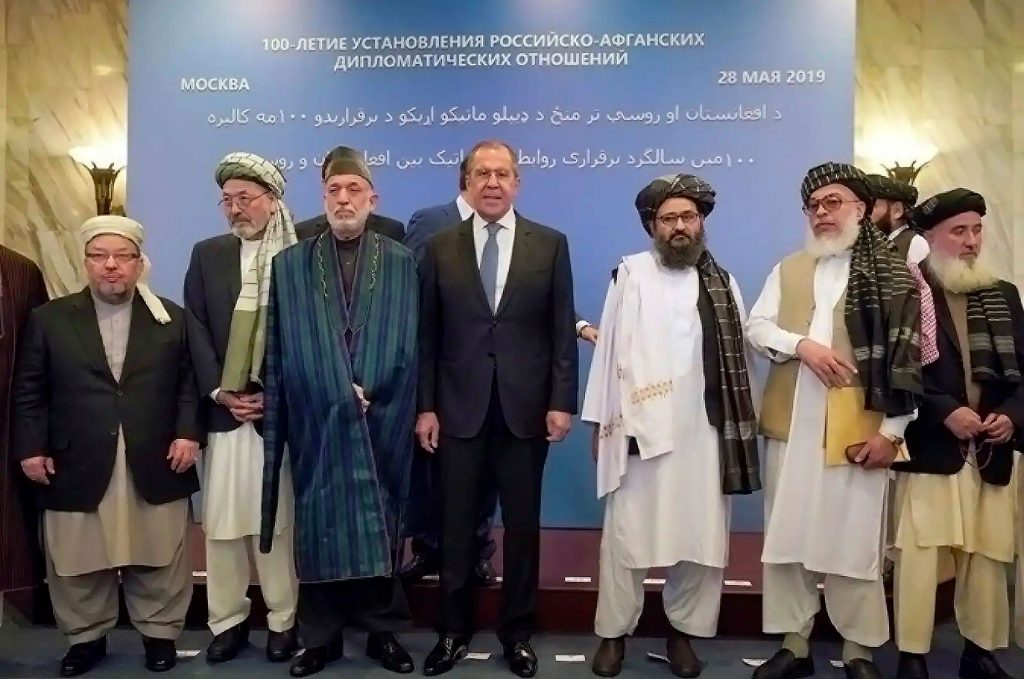
Official propaganda paints an alarmist picture of the situation: “The Taliban will feel cramped in Afghanistan, poverty will push them north, to Tajikistan and Uzbekistan in the first place, where they hope to get richer. And it will not be a Barbarossa plan with a full-scale invasion, but a slow penetration. Mainly religious, with new Islamic ideas finding fertile ground in these countries. You think Afghanistan is far away? Soon it will be an arm’s length away from Russia’s borders”.
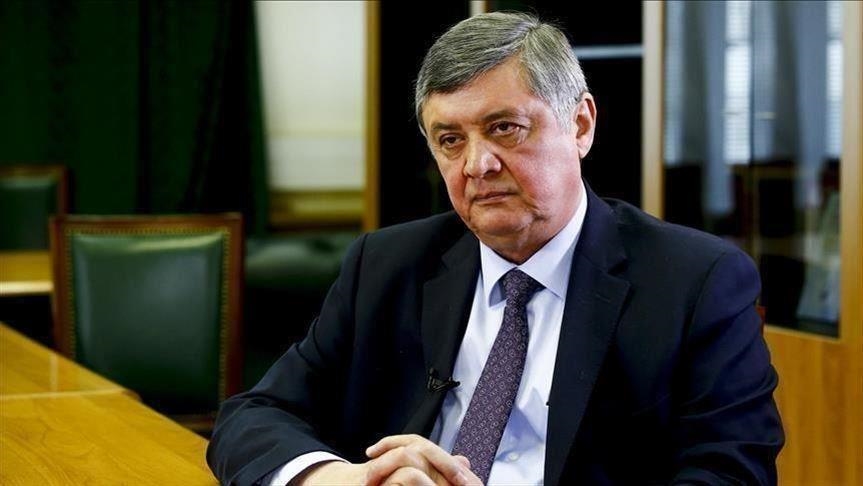
Russian experts are more reserved: Zamir Kabulov, Russia’s special envoy for Afghanistan, believes that armed clashes in the country could continue for another two months, and that the Taliban could take control of several more provinces. However, they are not in a position to impose their regime in Afghanistan: they are taking over the rural areas but not the urban centers. The Taliban army is not that large, ranging from 75,000 to 100,000 soldiers, compared to the 300,000 soldiers of the regular army.
Recent developments tend to support the alarmists’ view. The Afghan central state is disintegrating. In the regular army, desertions are numerous; soldiers of the Afghan government forces are fleeing en masse to Tajikistan. Taliban detachments are taking over Afghanistan and already control 85% of the country. Add to that the Islamic State jihadists who have fled from Syria and are deployed along the northern border, and let’s not forget the remnants of al-Qaeda. The Taliban have already seized the north of the country, and are gradually infiltrating the neighbouring territories, with little difficulty, since the army and forces of Tajikistan hardly control the 1,400 km long border with Afghanistan.
This breakthrough in the north has surprised Moscow: “No one expected the Taliban to succeed in northern Afghanistan, because in the 1990s it was the only place where they met resistance,” says Russian expert Omar Nessar. At last count, 1,500 Afghan fighters have already crossed into the territory of Tajikistan, 200 into Uzbekistan; they can also enter Turkmenistan through the Amu Darya. The Turkmen-Afghan border is one of the most vulnerable. Rumour has it that weapons are confiscated from the Turkmen army because they fall into the hands of Islamists.
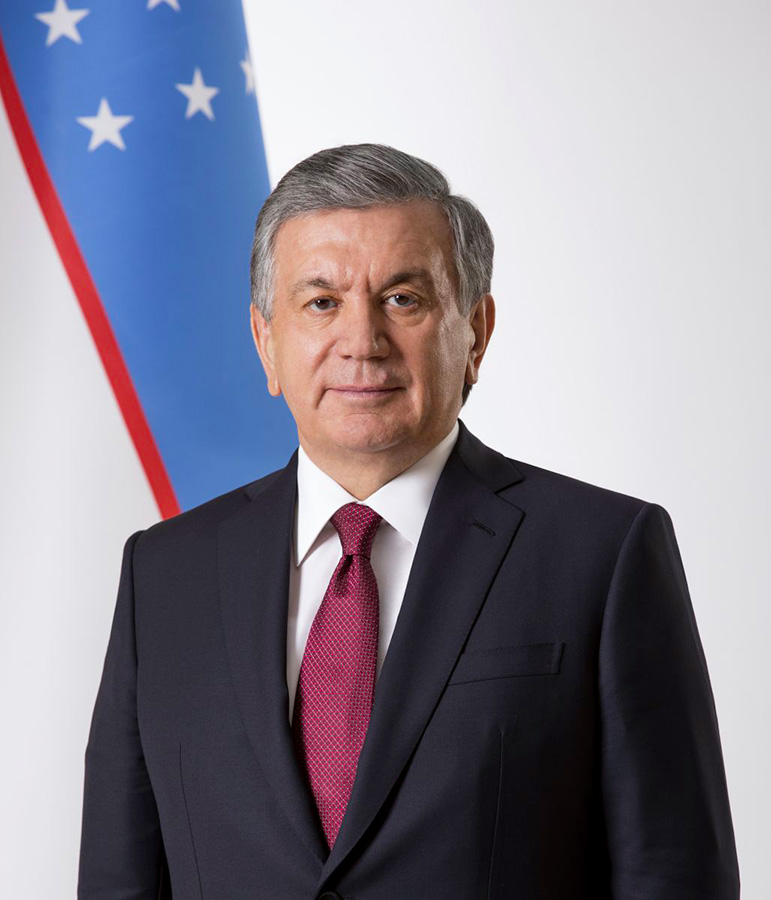
Ten million Tajiks live in Afghanistan, most of them hostile to the regime in Dushanbe (the Taliban have a mortal grudge against Emomali Rahmon, the Tajik president, who supports Tajik warlords in Afghanistan who are hostile to the Taliban).
Shavkat Mirziyoyev, the president of Uzbekistan, and his Tajik counterpart are working to coordinate their efforts to ensure the security of their countries. Uzbek authorities have already closed the Termez Bridge, through which Soviet soldiers entered Afghanistan in 1979 and left in 1989. The Uzbek army (the only effective one in the region) conducts large-scale exercises on the border with Afghanistan and military training courses are held in schools.
Shavkat Mirziyoyev, president of Ouzbékistan
Dushanbe has asked the CSTO [the Collective Security Treaty Organization includes Armenia, Belarus, Kazakhstan, Kyrgyzstan, Russia and Tajikistan] to help protect the borders. But the crisis situation has only revealed the fictitious nature of this organization that Moscow trumpeted as a counterweight to NATO: for Alexander Kobrinsky, director of the Agency for Ethno-National Strategies, “It is difficult to imagine that Armenia or Belarus would make an effort for Tajikistan. It should be understood that it is not the mythical CSTO that will save Tajikistan, but Russia as a leading member. Today, the moment of truth has come for the bloc – to be or not to be. And those who look to Russia for help must fulfill allied obligations on a grand scale, including supporting Moscow in its sanctions war with the West, participating in bringing Ukraine to heel, and joining anti-Ukrainian sanctions.”
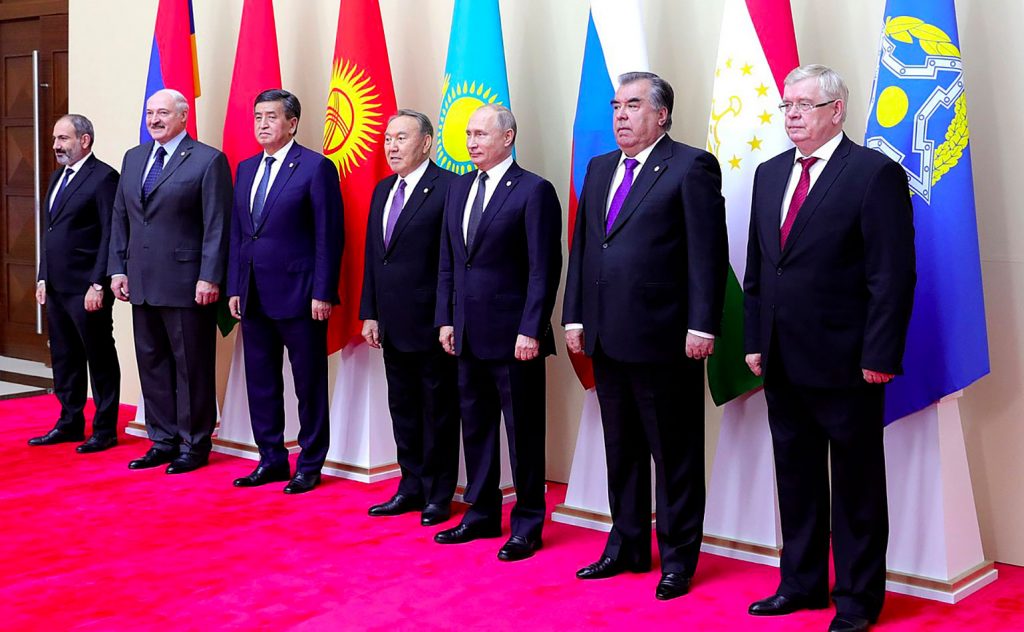
The Russians note with concern the ambivalence of some of their Central Asian partners. Shavkat Mirziyoyev has just authorized amendments to the law on “freedom of conscience and religious organizations,” lifting the ban on wearing the hijab in public, simplifying the registration of religious organizations. “Tashkent is not yet very concerned about the possible escalation of the conflict after the Taliban took over the northern provinces of Afghanistan. Apparently, Tashkent is not opposed to closer relations with the Taliban, as in the time of President Islam Karimov,” suggests Nezavissimaya Gazeta. Tajikistan is in no hurry to give back control of its borders to the Russians, as the Tajiks prefer to reserve this juicy sector for themselves, fuelled by drug trafficking. Worse still in Moscow’s eyes, Uzbekistan and Tajikistan are negotiating with Washington through the intermediary of the Turks to open American bases on their territory. This has panicked Moscow to such an extent that at the Geneva summit on June 16 Putin proposed to Joe Biden to jointly use Russian military bases in Tajikistan and Kyrgyzstan and coordinate policy in Afghanistan.
Russia’s immediate goal is to build a barrier in the region, creating a buffer zone. So far, Moscow has only one base, the 201st Russian military base in Tajikistan, with 15,000 troops and about 300 tanks. This is actually the division that was withdrawn from Afghanistan and moved to Tajikistan in 1989. This 201st base can fight both on the ground and in the air. It has its own air group, consisting of modernized Mi-8MTV5-1 transport and combat helicopters, and can also call on the support of Su-25 attack aircraft and frontline bombers from the Kant base in Kyrgyzstan, and, if necessary, “long-range” Tu-160s and Tu-22s sent as reinforcements from Russian territory. Russian troops are deployed in the republic’s capital, Dushanbe, and another regiment is located in the city of Bokhtar (formerly Kurgan-Tube). However, the Russian 201st military base is not present at the border because since July 2005, the Russian border guards have been withdrawn, and border protection has been handed over to the Tajiks, whose motivation is low. The 201st base is in no condition to protect Tajikistan from a possible invasion from Afghanistan. It can, of course, trench in Dushanbe or Bokhtar, where its main forces are located, but it would not be sufficient to defend the entire Tajik territory.
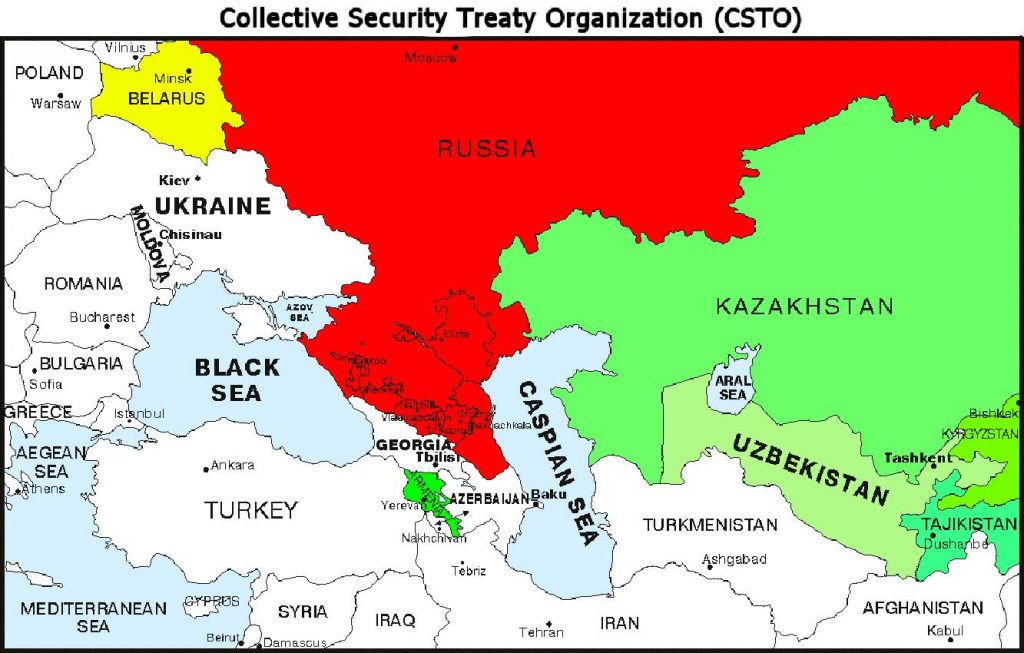
In the longer term, the Kremlin would like to deal with an organized government in Afghanistan, against which it could use its usual methods: infiltration, co-opting of elites, setting up networks of influence. Russian experts make a distinction between the Taliban, whose primary goal is to control Afghanistan, and internationalist Islamist groups such as the Islamic State, whose ambition is to destabilize Russia. The Kremlin wants a modus vivendi between the Taliban and the government of Ashraf Ghani, and for both sides to jointly lead the fight against the “internationalists”. But in the shifting sands of today’s Afghan politics Moscow feels helpless. “Neither Russia nor any other country has yet managed to become a real mediator in the negotiations between the government and the Taliban, largely due to the opaque nature of the Afghan system…,” according to the RBK website.
Whom exactly does the Taliban delegation represent which came to Moscow on July 8-9 not from Kabul, but from the Qatari office? Their aim was to get the UN sanctions against their movement lifted. They displayed their “firm determination to fight the threat of the Islamic State in Afghanistan and to eradicate drug production in the country after the end of the civil war.” They promised Moscow that they would not engage in any aggression against neighboring countries, including Russia — without convincing anyone: “It is unlikely that the political leadership of the Taliban can guarantee that there will be no unwanted incidents in the north, as the group consists of many scattered detachments and among the fighters there are representatives of other groups who may have their own objectives.” Kremlin propagandists were a bit embarrassed by this eager welcome to the delegation of a terrorist group banned in Russia since 2003: “Talking with them is the moral duty (sic!) of the Russian state, the preponderant military power in Eurasia,” pontificates Timofei Bordachev, one of the leaders of the very putinist Valdai Club.
The American withdrawal opens a competition between regional powers for the dominant position in Afghanistan. Russia has ambitions for this role, but it must reckon with the increased weight of Turkey and Pakistan in the region. It is worried about the “neo-Ottoman” ambitions of Turkey, which claims to play the role of moderator of intra-Afghan processes. On June 14, Erdoğan agreed with Biden to take control of Kabul airport after the departure of the Americans, while the Taliban demanded the complete withdrawal of Turkish military formations from Afghan territory. But Russian experts do not believe in a confrontation between the Taliban and the Turks, especially because of the excellent Turkish-Pakistani relations. Well established in Afghanistan, Turkey could become Russia’s rival in the role of protector of the Central Asian republics, while remaining a NATO stooge.
Some people in Moscow are betting on the Chinese card and on the SinoTurkish rivalry. China is committed to a “traditional and non-traditional” defense of the security of Turkmenistan and Tajikistan. It is allegedly concerned about a possible reorientation of the Central Asian countries towards Turkey. Beijing may have the ear of the Taliban because China is the only country willing to invest in Afghanistan without putting domestic political conditions on it. However, it is also in China’s interest to avoid destabilization in Central Asia, and especially to avoid the activation of the Uighurs. It can therefore help the Taliban to assert themselves against the other jihadists, provided that they refrain from interfering with their neighbors. But others in Russia do not believe this: “China does not interfere, it reinforces its own borders and systematically destroys the base from which radicalism can spread on its territory. Oriented to East and Southeast Asia, it belongs to a different geopolitical space. The vast territories in the west inhabited by Muslims are not particularly interesting for China”. Moscow is also concerned that the Afghan situation could lead to a crisis in the Shanghai Cooperation Organization [created in 2001 by China, Russia and four Central Asian states, Kazakhstan, Kyrgyzstan, Tajikistan and Uzbekistan, and expanded to include India and Pakistan in 2017]: India and Pakistan will not participate in the “Peaceful Mission-2021” maneuvers in Central Asia planned by the SCO in September: visibly “Delhi, and Islamabad intend to conduct their own policy towards the future leadership of Afghanistan.”
What is to be done? Of course assist the Central Asian republics. And also “coordinate efforts with Iran, China, the United States, Turkey and other interested countries to prevent the fall of the regime in Kabul and to start a real inter-Afghan dialogue. Because chaos in Afghanistan means chaos in Central Asia, and Russia does not need that.” So, a new Russian intervention in Afghanistan? Former ambassador to Afghanistan Zamir Kabulov seems to leave all options open: “As for military assistance to Afghanistan, let’s wait until there is a normal government in Kabul, and we will discuss military assistance with it. We do not impose our good offices, but when we are politely asked, we are ready to do so.” Many experts dismiss this possibility as folly, but let us not forget that Putin’s two dominant passions are to erase the offenses suffered by the USSR and to prove that Russia can do better than the Americans. Meanwhile, there is concern in Moscow: “Will Russia have enough capacity to maintain security simultaneously in Syria, Karabakh, Transnistria, focus on Ukraine and continue to fight against the Islamic State and al-Qaeda in Central Asia?”
Françoise Thom
See also: « La Russie devant le guêpier afghan » in DeskRussie (2021-07-16)
Françoise Thom’s publications on Desk Russia (2021)











